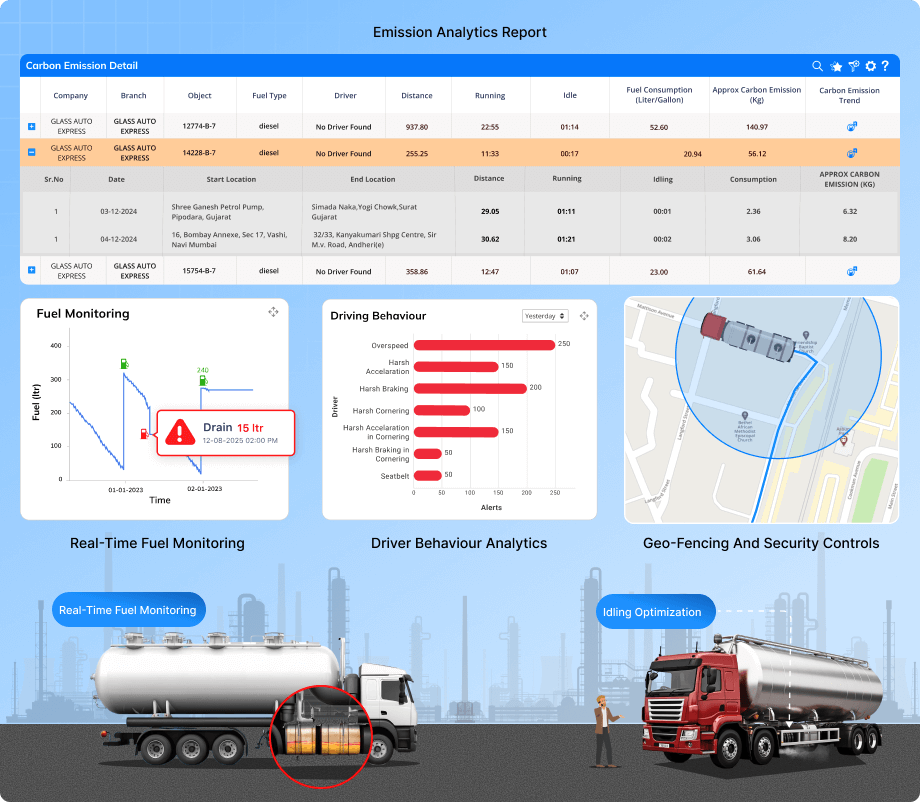The oil and gas industry in Malaysia is majorly dependent on large fleets to transport fuel and refined products. Managing these fleets effectively is a key concern, as fuel misuse and high emission directly affects operational costs and compliance. Many operators still face challenges like tracking fuel usage and meeting environmental goals. By adopting this fleet solution, it helps to gain complete visibility into fuel consumption and support sustainable operations.
Fuel Control and Emission Optimization in Malaysia’s Oil & Gas Fleet Operations
giriiş
Zorluklar
Before adopting connected fleet systems, Malaysian oil and gas operators faced multiple fuel and emission-related issues:
- Unmonitored fuel theft and wastage: Manual supervision couldn’t detect siphoning or unauthorized refueling.
- Excessive fuel consumption: Prolonged idling, inefficient driving, and poor route planning inflated operating costs.
- Lack of emission visibility: Companies had no accurate CO₂ or pollutant data to support compliance reports.
- Engine inefficiency: Irregular maintenance led to higher fuel burn and black-smoke emissions.
- Regulatory pressure: DOE and PETRONAS reporting standards required verified, digital emission data – unavailable in manual systems.
Solution with Fleet Management Software
The implementation of Fleet Management Software equipped oil and gas fleets with complete fuel and emission visibility through smart telematics tools:
- Real-time fuel monitoring: IoT-based fuel sensors measure tank levels, detect sudden drops, and log refueling patterns.
- Route and idle optimization: GPS and AI-driven algorithms reduce unnecessary travel and engine-on time.
- Driver behavior analytics: The system scores drivers based on speed, braking, and idle time – improving fuel discipline.
- Maintenance alerts: Automated service reminders keep engines performing efficiently, minimizing fuel waste and smoke emissions.
- Emission analytics dashboard: Converts fuel-use data into CO₂-equivalent emission reports for compliance and sustainability tracking.
- Geo-fencing and security controls: Alerts trigger if vehicles refuel or operate outside approved fuel zones.
Elde Edilen Sonuçlar
After deployment, fleet operators in Malaysia’s oil and gas sector reported strong, quantifiable outcomes:
- Fuel theft incidents reduced by 40%, through real-time drop detection and geofence-based alerts.
- Fuel consumption decreased by 15–20%, owing to route and idle-hour optimization.
- CO₂ emissions lowered by up to 18%, directly linked to improved fuel efficiency.
- Maintenance-related inefficiencies dropped by 25%, extending vehicle lifespan.
- Compliance reporting time reduced by 50%, using automated emission and fuel summaries.
- Safer, greener driving culture established across the fleet through driver-score visibility.
Birlikte İleriye Doğru Hareket Edelim
Bilgilerinizi paylaşın, sizi buradan itibaren yönlendirelim.



